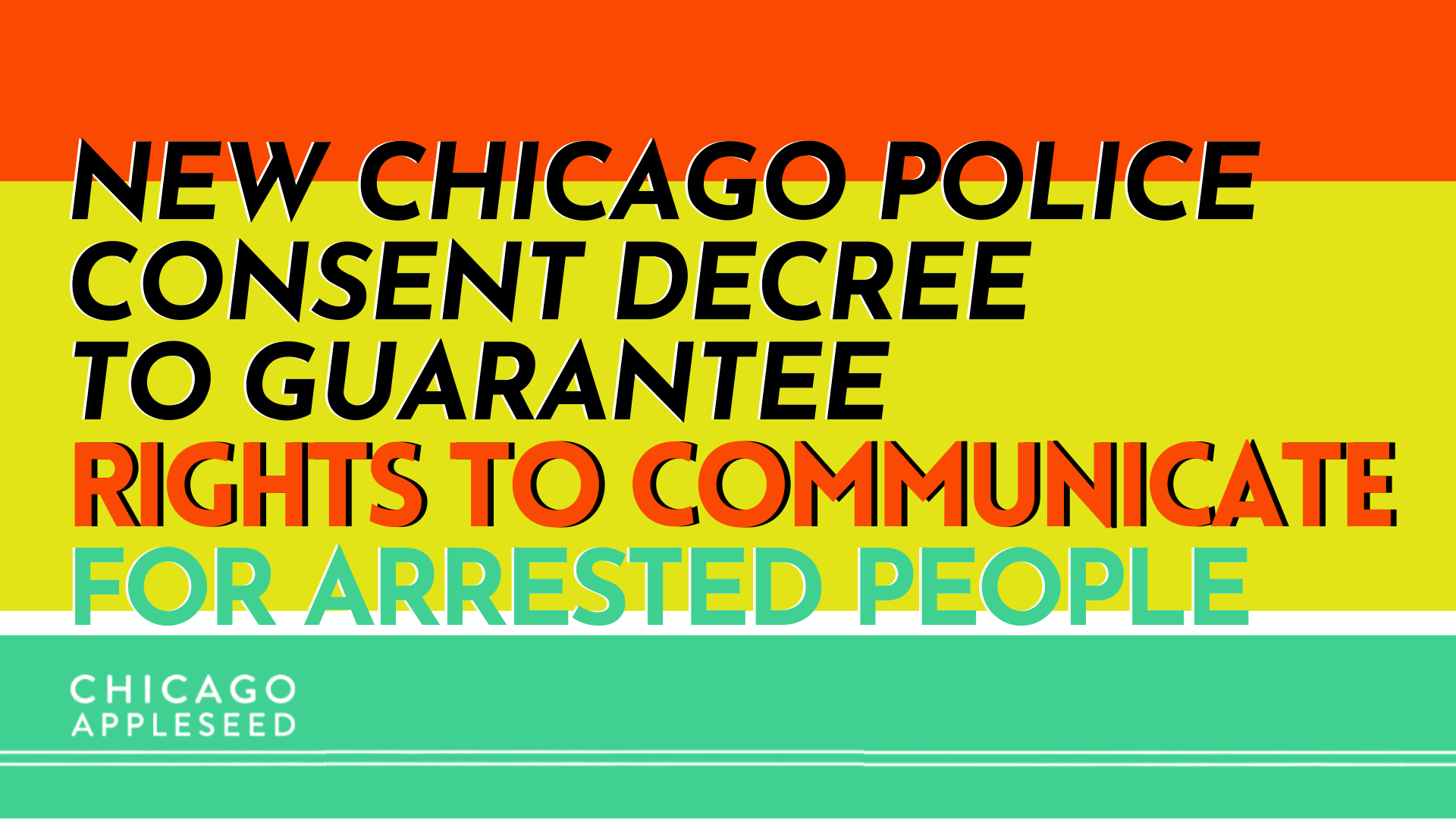New CPD Consent Decree to Guarantee Rights to Communicate for Arrested People
Entered at the end of September 2022, a newly signed consent decree, #LetUseBreathe Collective v. City of Chicago, means people detained by the Chicago Police Department (CPD) must be given access to phones and lawyers in all detention facilities. This measure means to combat the coercive interrogations that are common in Chicago, which is often known as the “False Confession Capital”of the United States. Indeed, Chicago Appleseed Center for Fair Courts found that thousands were detained without charge for longer than 48 hours, leaving them vulnerable to deliver false statements in their circumstances, especially without representation.
Until January 2022, arrested people were only entitled to a “reasonable” number of calls within a “reasonable” amount of time, but the discretionary language and lack of enforcement allowed officers to restrict these rights, with some people denied phone calls for 12 hours or entirely. The resulting inability to inform loved ones of their whereabouts or obtain legal representation could be partially mitigated with the new legislation. Under the SAFE-T Act, people in custody must receive three phone calls within three hours of being taken into police custody. If police violate this rule, any statements that a person makes to police are presumed inadmissible in court. The legislation also requires police to collect and record data to show that people are actually being given their three phone calls.
The consent decree’s provisions largely track the new legislation, but they provide more monitoring and data collection to ensure that the Chicago Police Department actually follows the new law. The new consent decree’s provision to provide people three calls from their cell phone contacts within three hours (but as soon as possible) can help protect against false confessions by increasing access to legal representation at the time of arrest. This provision has certain limitations where CPD can still deny consultation access if the identity of the person on the other line cannot be verified over the phone. The City is required to put in signs to inform detained people of these rights and the phone number for the public defender, as well as provide private rooms for attorneys to meet with clients. The City of Chicago has installed or will install telephones for this purpose in all police districts and areas, including detective interrogation rooms, the organized crime bureau warehouse at Homan Square, and wherever youth are detained. Even when a person hasn’t asked for an attorney, CPD will now have to tell people they detain if there is a lawyer on the phone or at the station available to them.
With more access to legal representation and communication with the outside world after immediate arrest, those detained are more likely to get the help they are entitled to rather than submitting to CPD strategies that have historically included violence, cruel interrogations, isolation, and lying. Plaintiff’s counsel, which includes Alexa Van Brunt at Northwestern, Craig Futterman at the University of Chicago, and Daniel Massoglia at First Defense Legal Aid, will be able to monitor and enforce the agreement for at least the next two years.
Maya Simkin (they/them) is a 3L at Chicago-Kent College of Law and a Law Student Intern with Chicago Appleseed Center for Fair Courts. Maya is committed to abolition and is interested in learning how efforts in public interest law can contribute to liberation.

